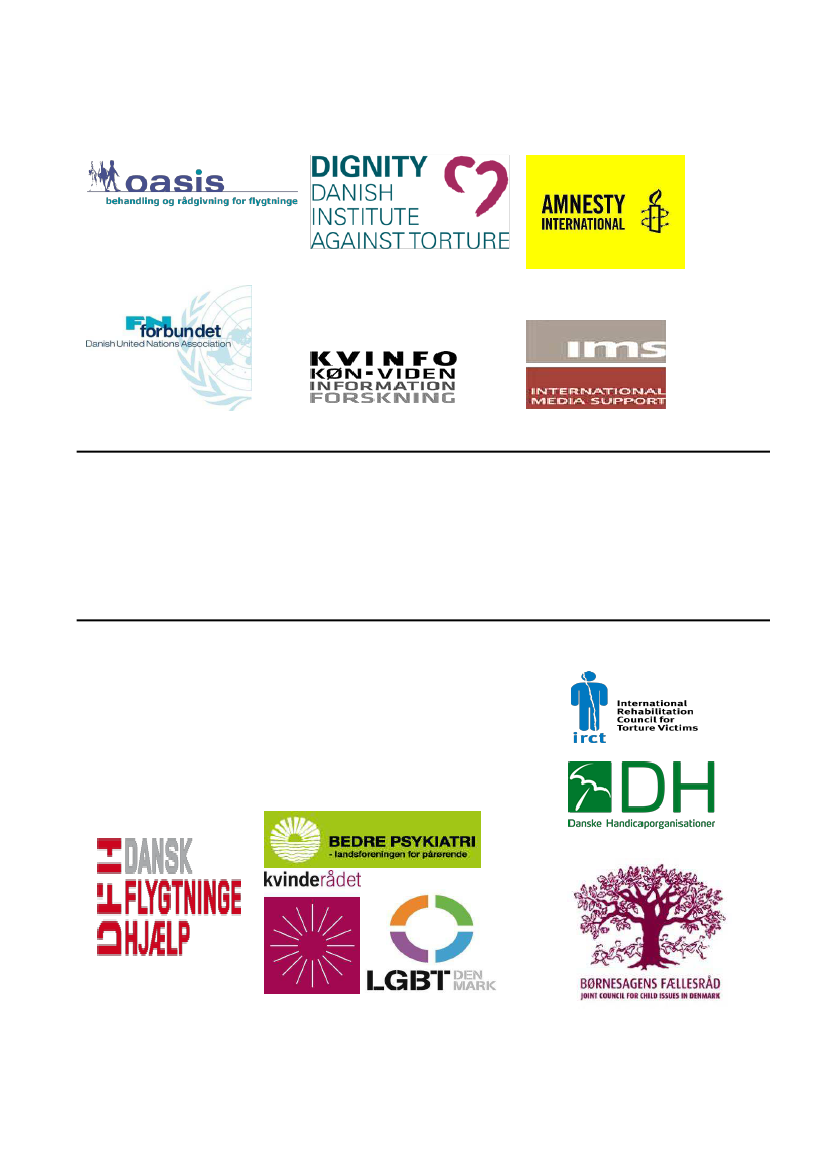
European Anti-Poverty Network
European Network against Racisme
Joint NGO submission
i co
ectio with De
ark’s
id-term
reporting on the implementation of
the 2016 UPR recommendations (second cycle), July 2018
National Council for
Children in Denmark
RETSPOLITISK
FORENING
Danish Law Association
OXFAM-IBIS
HELSINKI COMMITTEE
DANISH RED CROSS
1